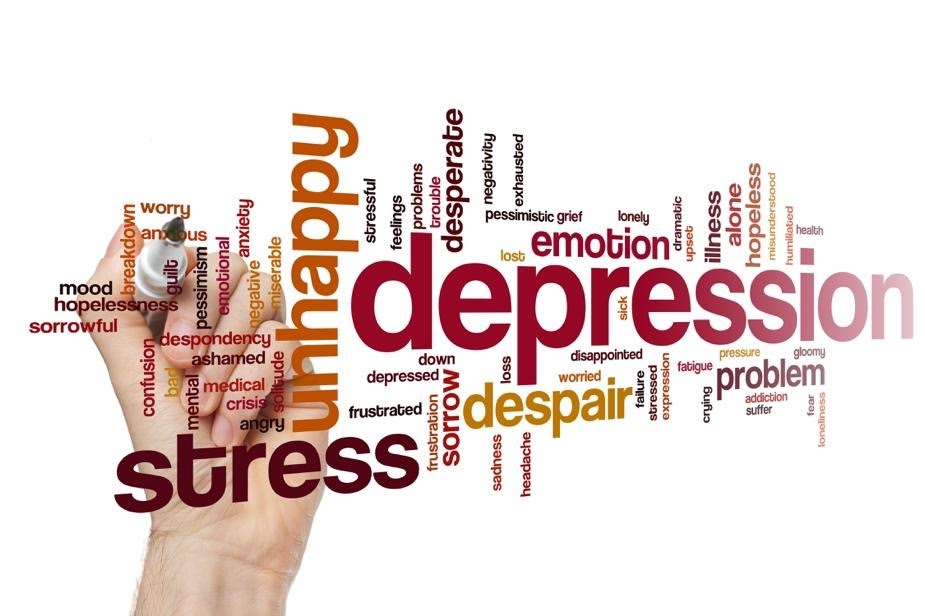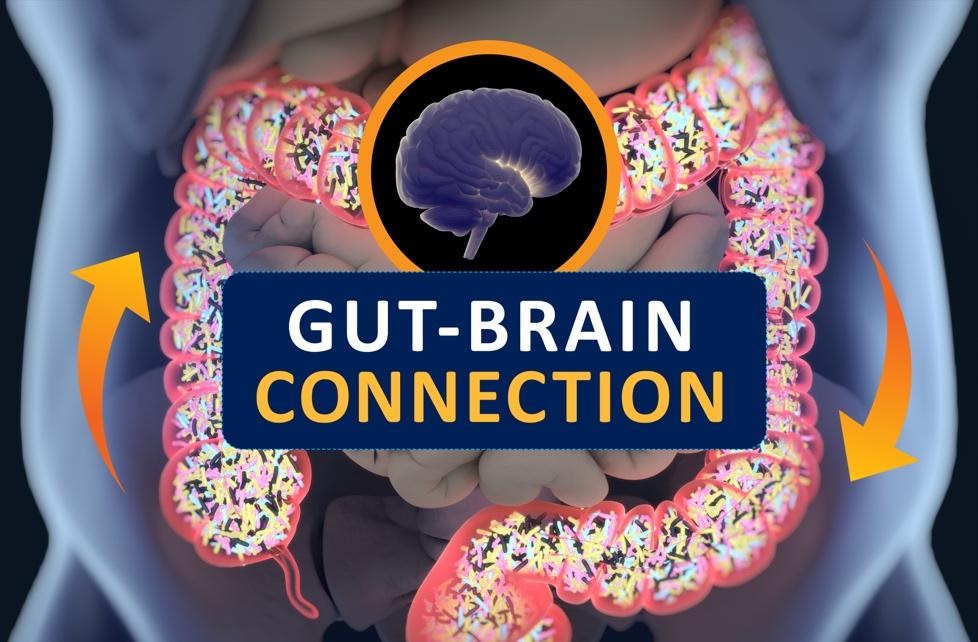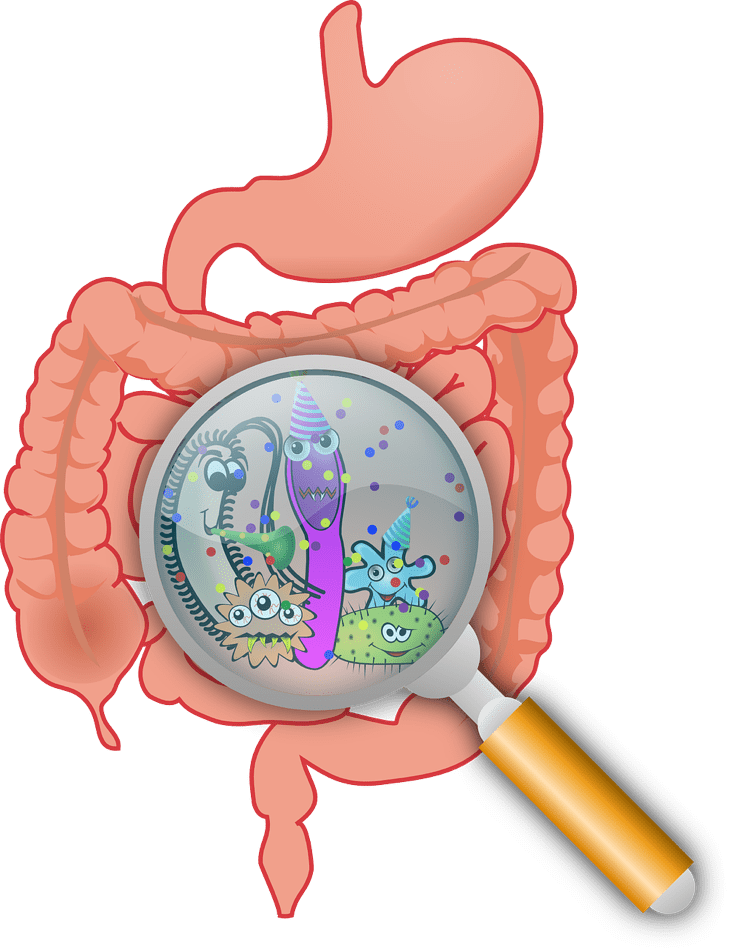How does gut health affect anxiety and depression?
With mental disorders on the rise, statistics show that over 3 million Australians are living with anxiety or depression and over 16 million in the United States, and that’s just the reported cases. How many of you know someone that suffers in silence, thinking they have it under control?
So, what is all the hype about when it comes to anxiety, depression and the gut-brain connection?
Let’s take a look at this further.
Anxiety and depression can easily creep up on you at any time. Since we all experience a variety of negative emotions, if these persist for an extended period, days, weeks, months, years even, then problems can arise

What negative emotions that can lead to anxiety & depression?
- Stress
- Anger
- Frustration
- Annoyance
- Irritability
- Impatience
- Rage
- Hatred
- Aggravation
- Hostility
- Aggression
- Violence
- Fury
- Fear
The above negative emotions are not only well-researched and documented triggers for anxiety and depression, but also affect gut health. When gut health is affected by negative emotions, the quality of the microbiome becomes less than, when this happens, the gut sends signals to the brain via the gut-brain axis that all is not well. This feedback loop can become a vicious cycle if left unchecked and can cause progression of anxiety and depression.
Let’s take a look at this further.

How do negative emotions impact on gut health?
When you experience negative emotions, like stress, anger or frustration, these feelings cause a cascade of chemical reactions in your body, that help you escape imminent danger.
Better known as the “fight-or-flight response.” Your body shuts down non-essential activities like digestion, reproduction, and sexual desire and uses chemical messengers to direct its energy and resources to the brain and muscles.
When energy and resources get directed to the brain and muscles, there is more blood flow at the ready to escape the perceived threat of danger.
Unfortunately, this has repercussions for the gut microbiome and how it affects brain health, via the gut-brain axis.
Let’s look at this further.

The Gut-Brain Axis – How do the gut & brain communicate?
The gut-brain axis is the connection from the gut to the brain from the central nervous system (CNS) and the enteric nervous system (ENS) of the body.
It involves direct and indirect pathways between cognitive and emotional centers in the brain with the gut intestines and the microbiota that are ecological communities of microorganisms that live inside the gut.
The gut-brain axis also communicates via the endocrine, immune and autonomic nervous systems and drives signals between the gut and the brain, respectively. Therefore, the gut microbiome plays a vital role in the gut-brain axis.
So how does the gut microbiome affect anxiety and depression?
Let’s look at this further.

How does the gut microbiome affect anxiety and depression?
Over the last few centuries, the gut microbiome and microbiota have experienced tremendous change, because of the modern transformations in diet, lifestyle, medical care, and environmental toxins.
Located in the gut microbiome are 100 trillion microorganisms of bacterial cells. These cells must contain approximately 80-85% good bacteria to facilitate the necessary production of short-chain fatty acids in the gut microbiota.
When the gut microbiota produces enough short-chain fatty acids, it facilitates the production of hormones that are needed to regulate feelings of wellbeing, happiness, calm and relaxation.
The hormones that produce these feelings of wellbeing, happiness, calm and relaxation are called serotonin and Gamma-Aminobutyric acid (GABA), both neurotransmitters that are transported from the gut to the brain via the gut-brain axis.
Serotonin & Gamma-Aminobutyric acid (GABA) & impact on anxiety and depression
Serotonin helps regulate mood, happiness and anxiety. When Serotonin levels are low, this affects mood and depression.
Serotonin also helps to regulate bowel moments and sleep. If you are currently suffering from anxiety and depression, then further symptoms of constipation and insomnia are going to add to your problems.
Gamma-Aminobutyric acid (GABA), plays an essential role in regulating mood since it is a relaxant. Since negative emotional responses like stress, anger & frustration excite the nervous system, GABA helps to calm and relax by counteracting the effects of excessive stimulation.
How can you make sure that your gut produces enough serotonin and GABA to help manage and reduce anxiety and depression?
Let’s address some support strategies that you can implement right now.

5-Tops tips “How to produce Serotonin & GABA & Reduce Anxiety & Depression
- Diet.
Consume Tryptophan foods:
Salmon, eggs, nuts and seeds, turkey, pineapples, plantains, bananas, kiwi fruit, plums, tomatoes, avocados, dates, grapefruit, cantaloupe, sesame, chickpeas, sunflower seeds, pumpkins seeds, buckwheat, spirulina.
Tip: Tryptophan converts to serotonin in the gut. For optimal digestion, eat when relaxed.
- Supplements.
Activate your NRF 1 & NRF 2 (nuclear respiratory factor 1 and 2):
Bio-hack your body & reduce inflammation in your gut & brain along the gut-brain axis and reduce symptoms of anxiety and depression by activating your NRF 1 & NRF 2 receptors. Scientific research shows that by activating the NRF 1 & NRF 2 pathways in the body can reduce free-radicals, pain & inflammation by up to 40%. Since studies show that anxiety and depression cause a cascade of inflammatory responses along the gut-brain axis, activating your NRF 1 & NRF 2 pathways can help reduce symptoms of anxiety and depression.
Tip: learn more about activating your NRF 1 & NRF 2 pathways and reducing anxiety and depression, please follow the link here.
- Include probiotics:
Include probiotics that contain strains of Bifidobacterium Lactobacillus, Lactococcus, these can make GABA in your gut.
Tip: Certain plant bacteria, consumed from some vegetables, produce a precursor molecule that the body uses to make GABA, also called glutamic acid.
- Stress Management.
Reduce stress by practicing stress management techniques:
Mindfulness, meditation, focus on friendships and social connections-all beneficial in managing emotional responses.
Tip: download mediation apps, and listen to morning and night time before bed, when relaxing.
- Take up a hobby.
A hobby can take your mind off less wanted emotions and have you focus on something enjoyable like:
Playing board games, reading books, surfing, watching movies, dancing, cooking, singing, travelling, learning a new skill, researching topics of interest and studying.
Tip: think about what you enjoy doing, what lights you up inside? Make a list, then decide on a suitable hobby.
- Enjoy physical activity.
Physical activity had many proven health benefits, besides staying in shape, it’s excellent for cardiovascular health, mental health and bone density choose from:
Walking, being out in nature, gym workouts, weight training, bike riding, swimming, running, jogging, yoga, CrossFit, rock climbing, tennis, football, hiking.
Tip: Physical activity releases happy hormones of endorphins, promoting feelings of wellbeing, get active today!
Final Word.
To ensure you are supporting and helping to manage or reduce your symptoms of anxiety or depression, please make sure that you follow the points mentioned above on 5-Tops tips “How to produce Serotonin & GABA & Reduce Anxiety & Depression”.
If you would like to learn more about tryptophan and foods that produce serotonin & GABA, support gut health and your gut brain-axis, then please download your free copy of “5-Steps to Amazing Gut Health, Cleanse Heal & Thrive.”
References:
https://www.beyondblue.org.au/
https://www.healthline.com/health/depression/
https://www.ncbi.nlm.nih.gov/pmc/articles/PMC6165386/
https://www.ncbi.nlm.nih.gov/pmc/articles/PMC6142822/
https://www.ncbi.nlm.nih.gov/pmc/articles/PMC6005194/
https://psychscenehub.com/psychinsights/the-simplified-guide-to-the-gut-brain-axis/
